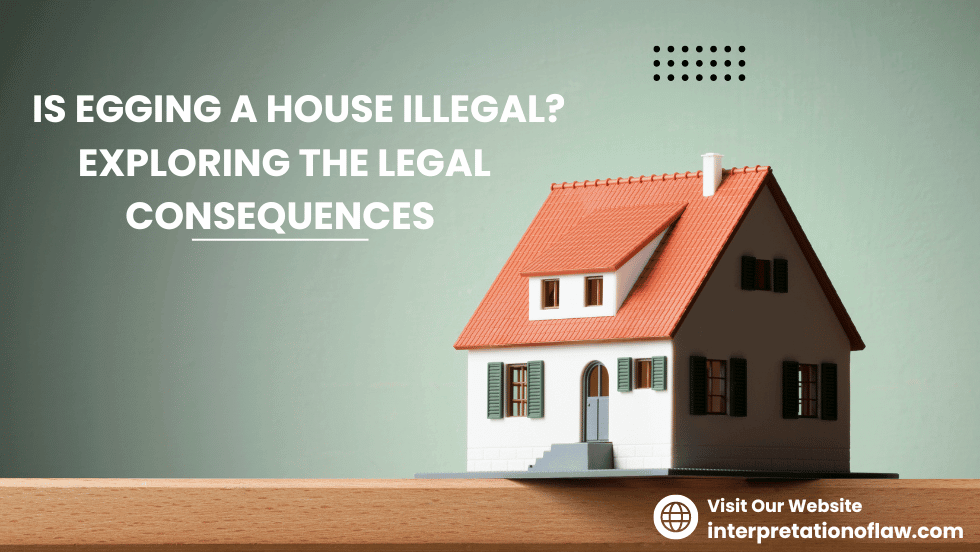Egging, a common prank that involves throwing eggs at houses or property, is often seen as a harmless joke. However, despite its reputation as a juvenile and relatively innocuous act, it raises important legal questions for homeowners, law enthusiasts, and the local community. Beyond the messy cleanup, could egg a house lead to actual legal trouble?
In this post, we’ll dissect whether it is illegal to egg a house, the type of crime it constitutes, potential jail time consequences, and homeowner rights under such circumstances.
What is Egging a House?
At its most basic, egging refers to the act of throwing eggs—usually raw—against the outer walls, windows, or roof of a house or other private property. Typically associated with Halloween pranks or acts of vandalism by disgruntled individuals, egging can cause substantial damage to property and emotional distress to homeowners.
Is Egging a House Illegal?
Put simply, yes—egging a house is illegal. It is considered an act of vandalism by law. Vandalism encompasses any willful action that causes damage or defacement to someone else’s property. Depending on the extent of the damage and the jurisdiction, the consequences of such an act can vary.
What Kind of Crime is Egging a House?
Egging property falls under the category of criminal mischief or vandalism in most legal systems. These crimes are typically classified as misdemeanors, but depending on the severity of the damage or if it’s a repeat offense, it could be elevated to a felony. The differentiation largely depends on the cost of the damage caused and the specific laws in place within the state or locality where the incident occurred.
Can You Go to Jail for Egging a House?
While it’s more common for egging incidents to result in fines or community service, there are scenarios where an individual can go to jail for egging a house. This is particularly true for repeat offenders or in cases where the egging is part of a larger episode of harassment or targeted vandalism. If the perpetrators are minors, juvenile court proceedings typically focus on restorative justice rather than incarceration.
What Are the Rights of Homeowners Regarding Egging Their House?
Homeowners have the right to protect their property and pursue legal action against individuals who cause damage. This can involve reporting the incident to the police, filing a complaint to initiate criminal charges, and/or suing the perpetrator for damages in civil court. It’s crucial for homeowners to document the damage and report it promptly to ensure the best chance of legal recourse.
In many localities, CCTV footage or eyewitness statements can significantly strengthen a homeowner’s case in identifying the perpetrators and proving the extent of the damage.
Conclusion
Now, you know about is egging someone’s house illegal, and the potential legal consequences of participating in this activity. Despite its portrayal as a harmless prank, egging is a serious offense that can result in criminal charges and possible jail time.
Moreover, homeowners have rights to protect their property and pursue justice for any damage caused by such acts of vandalism. It’s important to remember that even seemingly minor offenses like egging can have significant legal ramifications, and it’s best to avoid participating in such activities altogether.
So, let’s think twice before we throw that egg next time! Stay safe and respect others’ property.
More Related Post:
Is it illegal to tping a house?

Carter Wilson is a licensed lawyer with over 10 years of experience in various legal fields. He is passionate about making law accessible to the general public and helping individuals navigate through complex legal matters.

